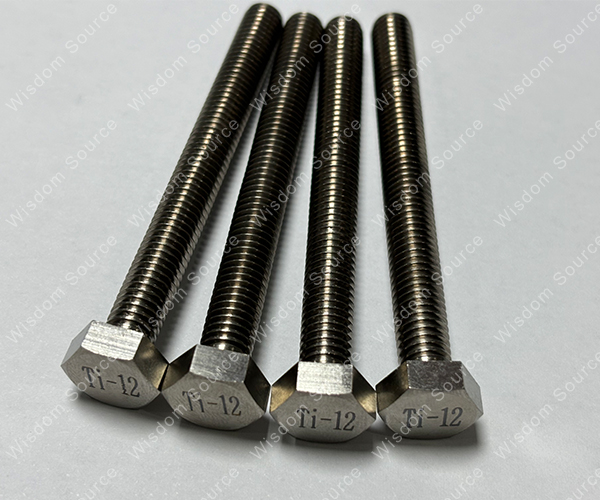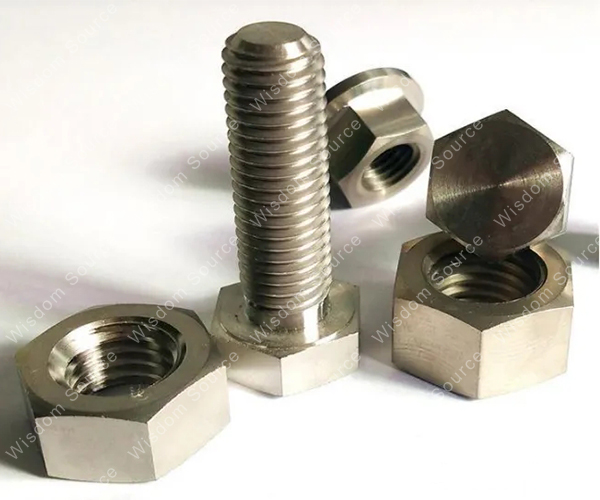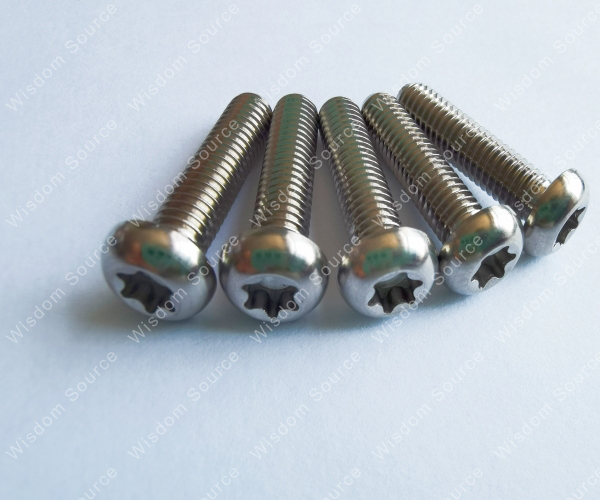Analysis of the Causes of Titanium Alloy Screw Failure and Usage Precautions
Analysis of the Causes of Titanium Alloy Screw Failure and Usage Precautions
Titanium alloy screws are widely used in
aerospace, precision machinery and other fields because of their “low density and high specific strength” characteristics.
However, in actual use, titanium alloy screws may break due to a variety of
factors. This paper objectively analyzes the common causes of titanium alloy
screw fracture from the perspective of material properties, usage methods and
maintenance, and puts forward targeted suggestions.
1. Material Properties And Strength Performance Of Titanium Alloy Screws
1) Specific Strength Advantage
① The “specific strength” (the ratio of strength to
density) of titanium alloy is higher than that of steel, but the absolute
strength is not outstanding. Its original design intention is to take into
account lightweight and structural strength, and it is suitable for scenes that
are sensitive to weight and need to be carried (such as aircraft structural
parts).
② Comparative
data: The tensile strength of titanium alloy screws is comparable to that of
steel screws (usually 800-1200 MPa), but the density is only 60% of steel and
the weight is lighter.
2) Source Of Fracture Risk
The fracture of titanium alloy is not due
to insufficient material strength, but is closely related to the use
environment, installation methods and maintenance conditions.

2. Common Causes Of Fracture Of Titanium Alloy Screws
1) Improper Installation Method
Insufficient torque control: Titanium alloy
has a low elastic modulus (about half that of steel), and it is easy to cause
plastic deformation or stress concentration due to excessive tightening when
tightening, causing fracture. Thread bite problem: Failure to use a matching
thread lubricant or insufficient thread accuracy may cause excessive local
stress.
2) Environmental Impact Of Use
① Temperature
Change: Titanium alloys may decrease in strength and toughness at high
temperature (>400℃) or low temperature (<-100℃), increasing the risk of fracture.
② Corrosive
Media: Long-term exposure to strong acids, alkalis, or environments containing
chloride ions may cause hydrogen embrittlement or stress corrosion cracking.
3) Material Defects and Fatigue Damage
① Internal
Defects: Titanium alloys may produce defects such as pores and inclusions
during smelting or processing, which reduces fatigue life.
② Dynamic
Load: When subjected to alternating loads (such as vibration and shock) for a
long time, titanium alloy screws are prone to fatigue fracture.
4) Design And Selection Errors
① Mismatched
Specifications: screws with insufficient diameter or length are selected,
resulting in insufficient carrying capacity.
② Alternative
Use: Using titanium alloy screws in non-design working conditions (such as
ultra-high-strength demand scenarios) may cause fracture.

3. Measures To Prevent Titanium Alloy Screws From Breaking
1) Standardize Installation Operations
① Torque
Control: Tighten strictly according to the torque value recommended by the
manufacturer to avoid over-tightening or under-tightening.
② Thread
Lubrication: Use special thread lubricants to reduce friction and stress
concentration.
2) Optimize The Use Environment
① Temperature
Management: Avoid long-term operation of titanium alloy screws at extreme temperatures,
and adopt heat insulation or cooling measures if necessary.
② Corrosion
Protection: Surface treatment (such as coating and coating) of screws that come
into contact with corrosive media.
3) Regular Maintenance And Testing
① Fatigue
Inspection: Regular non-destructive testing (such as ultrasonic flaw detection)
of screws that withstand dynamic loads.
② Replacement
Cycle: Formulate a reasonable replacement plan according to the working
conditions of use to avoid overdue service.
4) Reasonable Selection And Design
① Matching
Working Conditions: According to the actual load, temperature and medium
conditions, select the appropriate titanium alloy grade (such as TC4, TC6).
② Redundant
Design: double screws or reinforced structures are used in key parts to reduce
the risk of fracture.

The fracture of titanium alloy screws is not simply caused by insufficient material strength, but is closely related to the installation method, use environment, material defects and design selection. Through standardized operation, optimized environment, regular maintenance and reasonable selection, the risk of fracture can be significantly reduced and the service life of titanium alloy screws can be extended.
